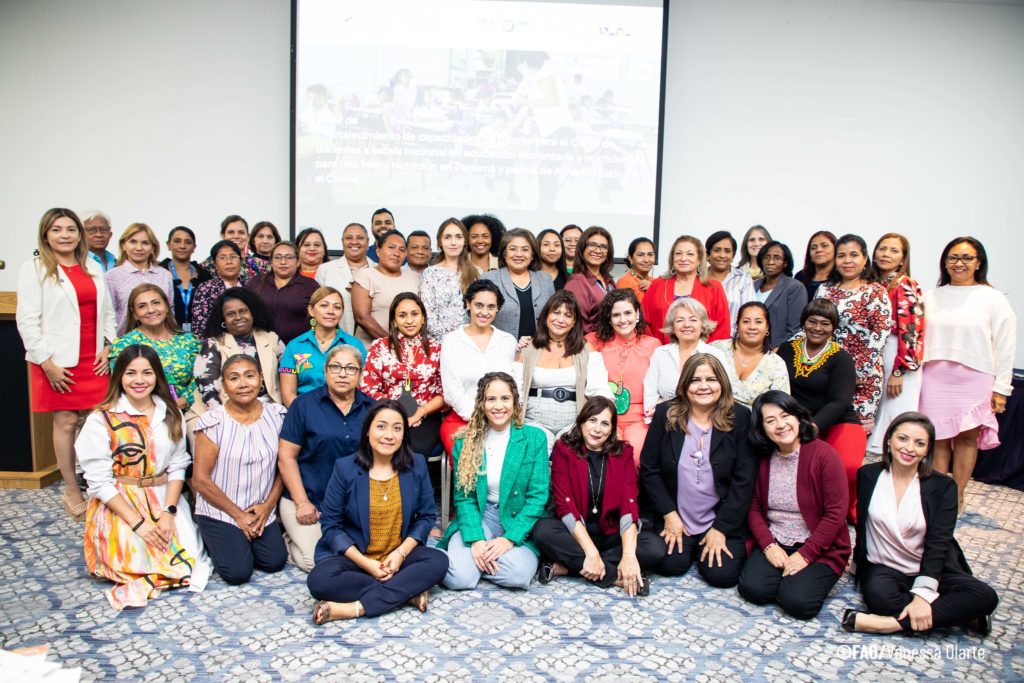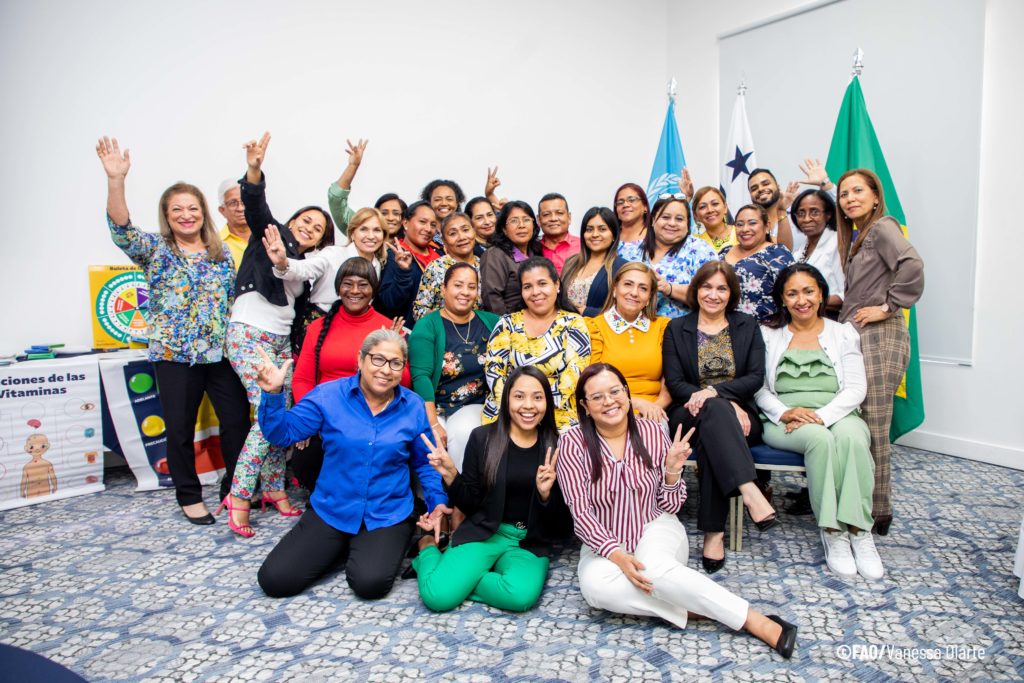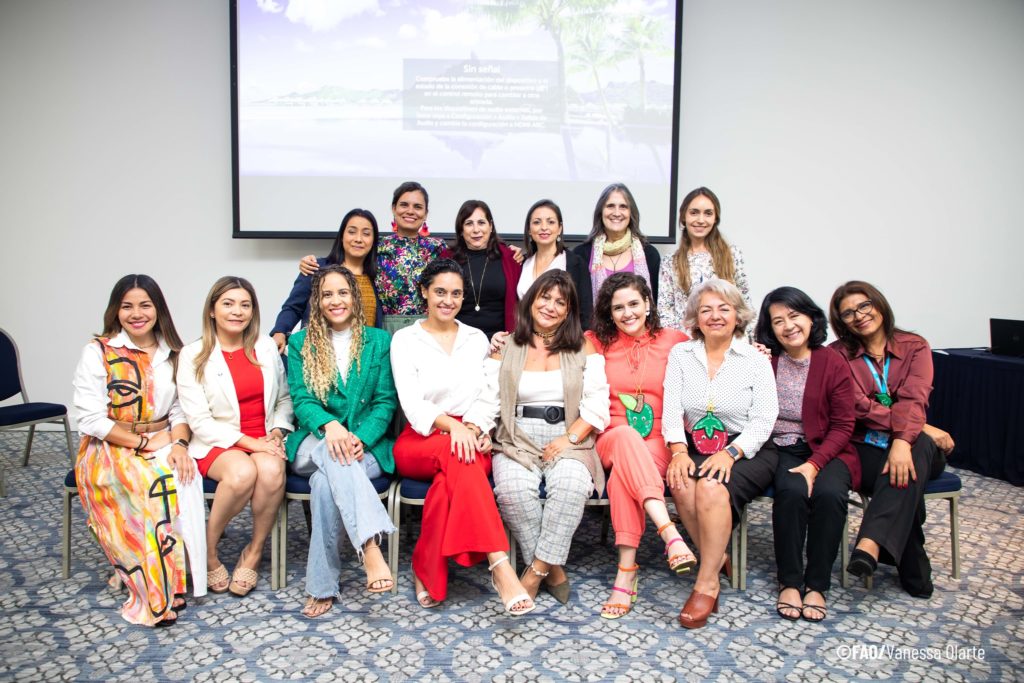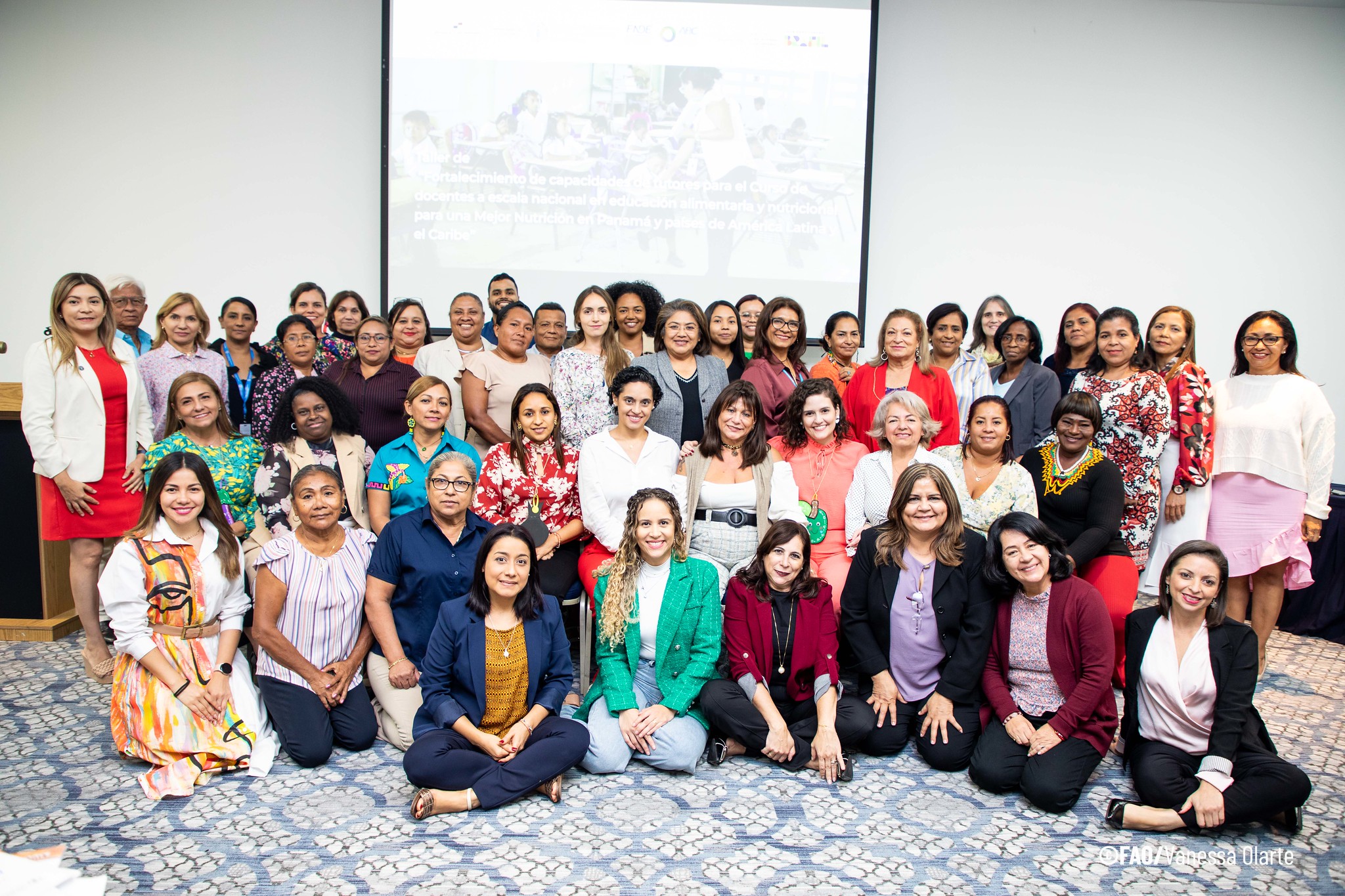The 3 instances developed a three-day workshop in Panama to exchange successful methodologies and strengthen capacities for food and nutrition education in Latin America and the Caribbean.
Paulo Beraldo e Ingrid Saravia
Panama City, Panama, April 11, 2023 – Professionals from 9 Latin American countries and international experts gathered from April 11 to 13 in Panama to participate in the workshop “Capacity building for teachers in food and nutrition education for a better nutrition”. The action is a joint effort of the Brazil-FAO International Cooperation, the FAO Representation in Panama and the Ministry of Education (MEDUCA) of Panama.
The objective was to promote teacher training and strengthen local capacities to scale at the national level the planning and implementation of food and nutrition education projects and actions (FNE) in the framework of the school feeding programmes and in the curriculum of LAC countries.
The activity had the participation of experts from the Brazil-FAO Cooperation and course tutors from the countries involved in this process in Chile, Colombia, Dominican Republic, El Salvador, Ecuador, Honduras, Nicaragua, Paraguay and Peru; as well as representatives of the Brazilian Cooperation Agency of the Ministry of Foreign Affairs (ABC/MRE) and the National Fund for Educational Development of the Ministry of Education (FNDE/MEC).
There was also the participation of teams from the Ministry of Education (MEDUCA) of Panama, specifically from the National Directorate of School Health and Nutrition, the International Cooperation Directorate, the National Curriculum Directorate, and teachers coordinators of subjects related to food and school health. Representatives of other ministries and sectors related to food, nutrition and school health also participate.
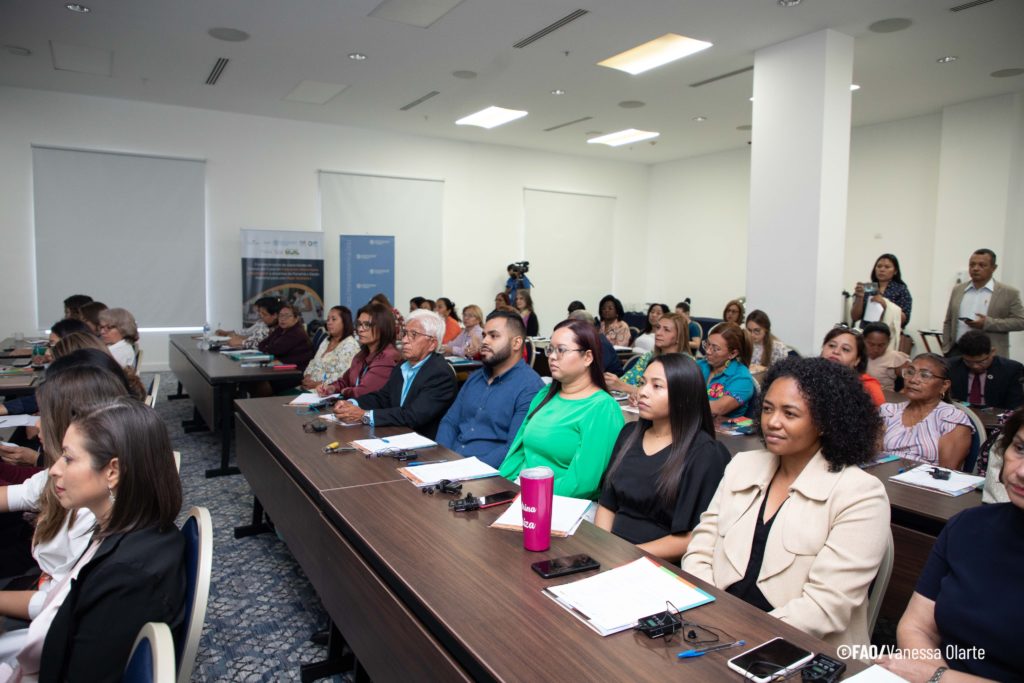
The official opening of the event was in charge of the Minister of Education, Maruja Gorday de Villalobos; the Assistant Representative of FAO Panama, Erika Pinto; Plinio Pereira De Assis, from ABC/MRE, Deborah Bosco, from FNDE/MEC, and Najla Veloso from the Brazil-FAO Cooperation.
The Brazil-FAO Cooperation in school feeding has been carried out since 2009 by ABC/MRE, FNDE/MEC and FAO. Since then, it has worked to strengthen and consolidate school feeding programmes in Latin America and the Caribbean with different methodologies, such as capacity building.
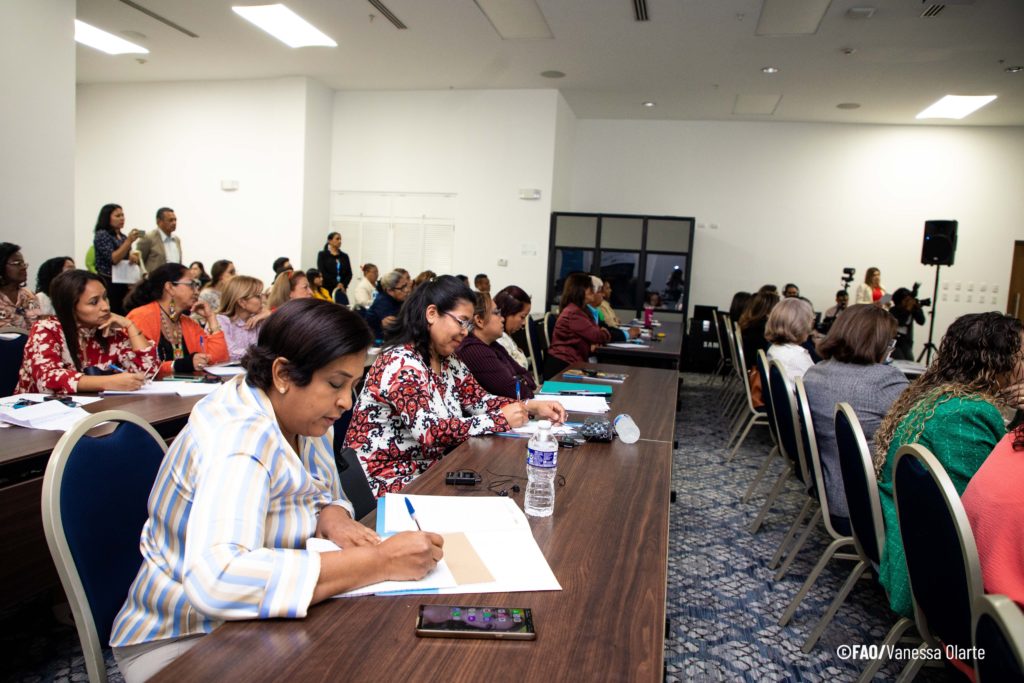
Deborah Bosco, coordinator of food and nutrition security of the FNDE, highlighted that FNE is a strategic action to control food and nutrition problems, being an ally in the fight against malnutrition in all its forms. “The PNAE enables the implementation of food and nutrition education in schools, raising awareness among students and the entire school community on healthy eating topics and the importance of sustainable practices from production to food consumption,” she said.
From ABC, Plinio Pereira pointed out that the objective of the institution is to support countries in the challenges of their development processes, through alliances. He highlighted the participation of the 9 countries in this international workshop, commenting that “the topic of school feeding has strengthened considerably each year thanks to the commitment of all partner countries.” Finally, he said that the Sustainable School Feeding Network (RAES) is a strategy to promote the exchange of experiences and strengthen the SFP of all the countries of the region.
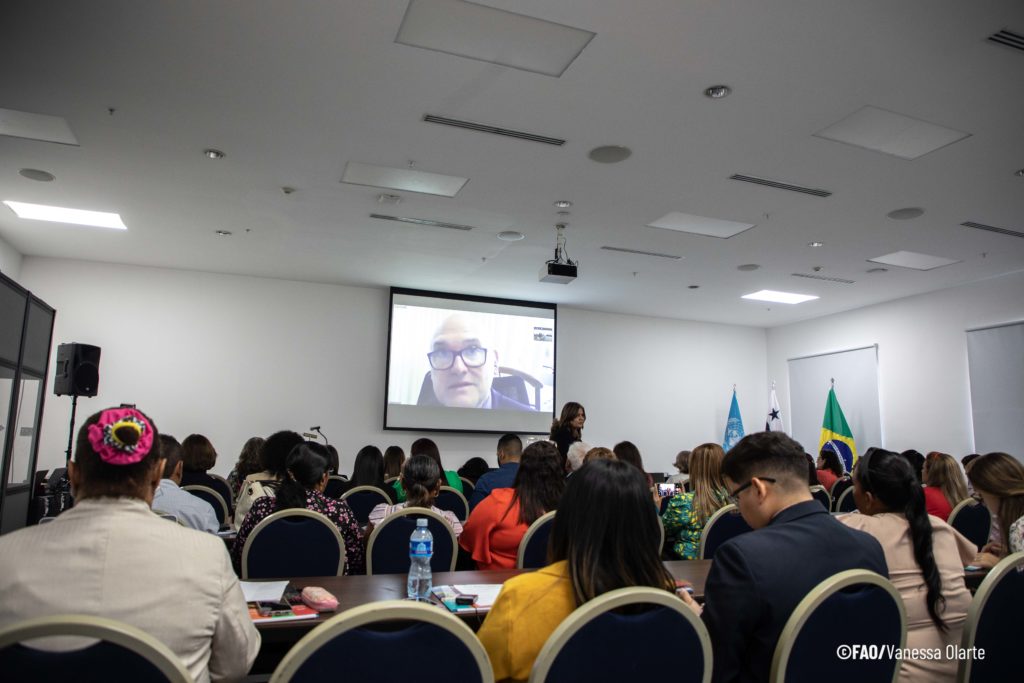
“In the workshop, 40 tutors or teachers strengthened the National School Nutrition and Health Program in the development and implementation of a second phase of the ‘Study without Hunger’ program, which began with 272 educational centers and, for this year, covers 500 schools reaching 102 thousand students”, explained the Minister of Education of Panama, Maruja Gorday de Villalobos.
Exchange
The objective of the workshop is to allow the exchange of experiences and good practices, develop capacities and knowledge of tutors and teachers in topics such as nutrition, food and healthy environments, and strengthen the methodology of Sustainable Schools, developed by the Brazil-FAO Cooperation.
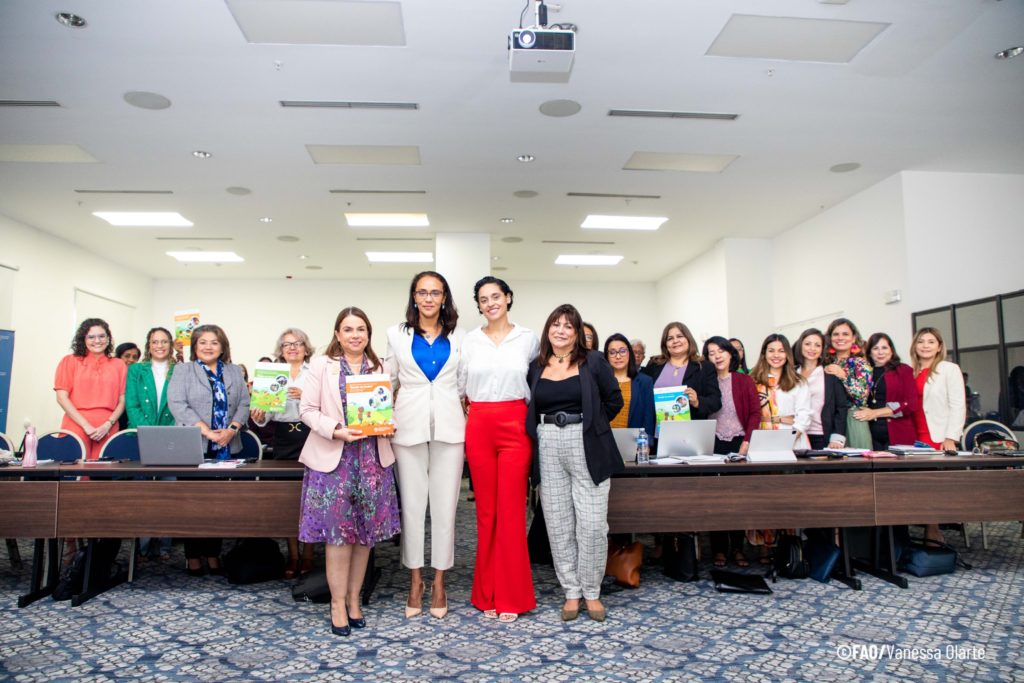
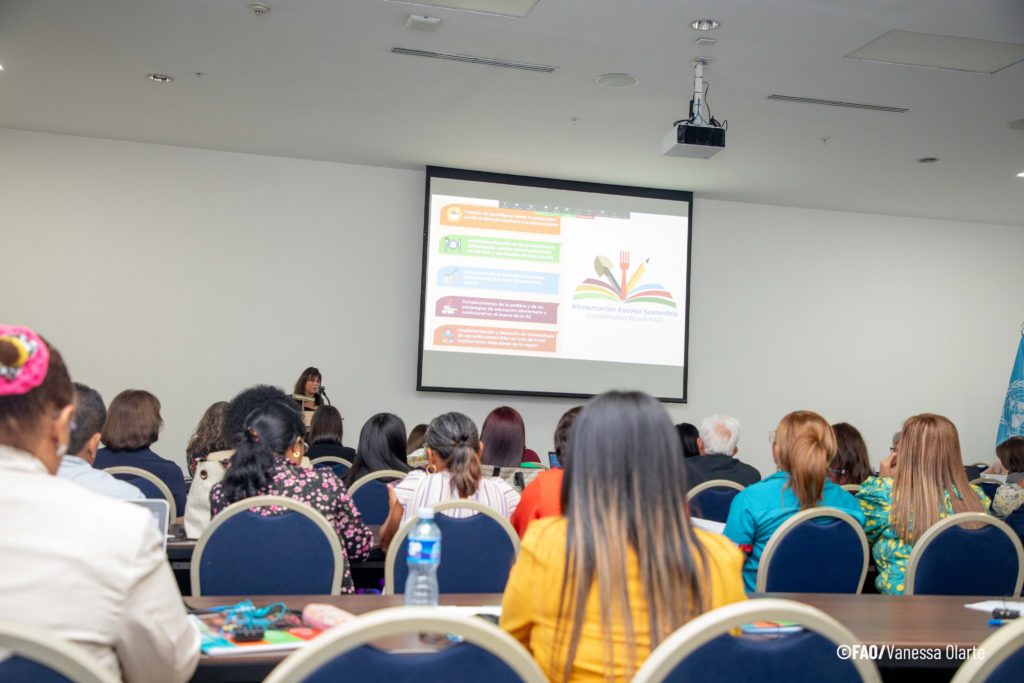
During the workshop, important points about the organization of the courses to teachers in the countries were highlighted. There was a presentation on the experience of El Salvador and good practices from other countries on the process of training teachers in FNE, focusing on issues such as institutional articulation, the preparation of a technical proposal with materials to use, in addition to the methodological design, the main achievements, lessons learned and challenges in the process implemented by this country.
“This workshop opens up the possibility of exchanging successful methodologies and identifying good practices developed in the countries of the south and center of the continent, and even more importantly, it allows Panama to share its experiences of food and nutrition education developed by MEDUCA. We hope that this event renews our will to continue deepening this strengthening of capacities to achieve a country free of hunger and all forms of malnutrition”, commented Israel Ríos Castillo, FAO nutrition officer.
According to Najla Veloso, coordinator of the school feeding project of the Brazil-FAO Cooperation, teacher training plays a key role in contributing to the development of healthy eating habits, to improve student learning and to promote a style of healthy life in the school population. With this action, she hopes to promote the adoption of measures to strengthen nutritional education in LAC schools, with lasting effects on students, families, and school communities.
More pictures:
